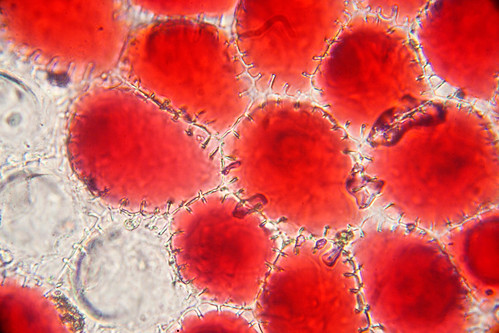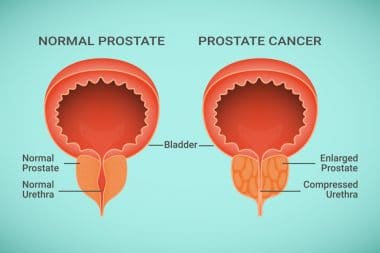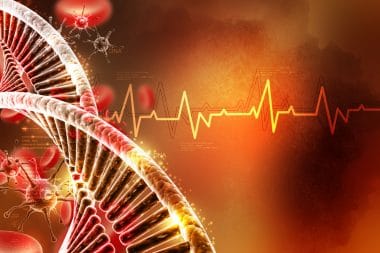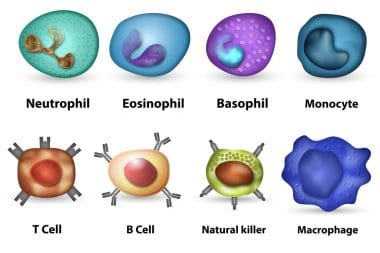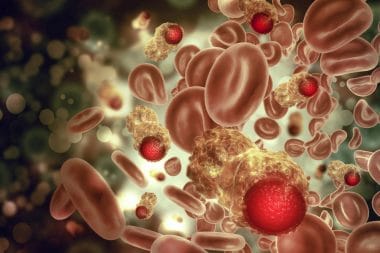When you hear the word “cancer” as a diagnosis for you or someone you know, immediately thought of “what do I want at my funeral” enters your mind. Next are the fearful pictures of lying in bed with multiple tubes coming out of your arms and greenish liquids being poured into your veins.
These and so many other myths abound around the single word “cancer”. While cancer is a disturbing diagnosis, it is not always fatal and full of liquid drugs. What it is a series of diseases caused by the abnormal growth or development of cells in your body. There are so many different types of cells and just as many different types of cancers. Cancer is not just one disease or condition it is important to know how cancer cells develop, how far the condition has spread and how it responds to treatments.
Understand cancer can go a long way to calming the mind and emotions and debunking several popular cancer myths will also help you be a bit freer in your mind.
Cancer Cells
Your body is formed from millions upon millions of cells. They are tiny and different parts of the body like organs, muscles, skin, bones and blood are made up from specialized cells. All cells have nucleus or a center and in each nucleus there are thousands of genes that make up DNA. Genes are codes that control the functions of the cell which control the functions of your body.
Genes regulate the cell”s growth and death and take care of multiplication. As old cells wear out, are damaged or die new cells are formed. There are cells whose normal development is rapid and some cells remain static after they mature. Your body is conditioned to make only the cells that are needed for a particular time.
Abnormal cells grow out of control. One or more genes in the cell is damaged or altered and the cell begins to divide in twos, fours, thousands, almost like a energetic out of control emotion. These cells do not know when to stop multiplying unless something disturbs this abnormal growth.
Large clumps of abnormal cells are tumors. Benign tumors grow slowly and do not spread or invade other cells and tissues. They are not life-threatening, usually and often do no harm. They may look unsightly or cause local pressure and pain, but benign tumors generally can be treated with medical intervention.
Malignant tumors are cancers. They grow very quickly and invade nearby tissues and organs causing destruction and damage. Secondary tumors will metastases or spread to different parts of the body. Those malignant cells that break off from the primary tumor are carried in the bloodstream or lymph channels. Abnormal cells split, grow and continue spreading invading healthy tissue.
How cancers occur seems simple, and it is. There are environmental, medical and emotion factors that contribute to abnormal cell growth, and many myths that have scared the common pubic into almost panic mode. Several myths concerning cancer can be debunked.
Cancer Myths
- Dying from cancers in the United States if increasing. Reported cancer statistics seem to indicate that cancer is totally out of context. The actual number of people who are diagnosed and die of cancer has grown – the population has also grown. Cancer is more common among the elderly and as the age of the population advances; so does cancer statistics.
The risk of being diagnosed with cancer and dying of cancer has decreased since 1990. Fewer than half the population diagnosed with cancer will actually die of the disease. Some cancers can be completely cured and many cancers survivors live for years with a great quality of life.
Cancer is not just one big disease; it is many different conditions with different causes. One cure all cancer drug will probably never be discovered, but with medical research there are types of cancers that are being successfully treated.
- Eating meat cooked on a charcoal grill causes cancer. This myth might have been perpetrated by the natural gas industry who wants their bbq grills to be run on propane. Interesting thought. However compared with frying meat in oil, grilled meat even over charcoal avoids adding extra fats and calories. There have however been chemical”s linked to cancer found in animals after they were fed great quantities of charcoal grilled meats.
You CAN intensify your risk of cancers by eating an overabundance of grilled red meat or even meat fried in oil at high temperatures. Meat that is burnt or well done may cause the most problems.
Just like everything else, enjoy grilled meats on an occasional basis. The chemicals created by grilling are heterocyclic amines and they formed during grilling, broiling or searing meat at very high temperatures. Some good ideas when grilling meats to reduce cancer risks can include not eating blackened or burnt meats (thy don”t taste good anyway), precook meats in in the oven or microwave then grill for just a couple of minutes, and eat smaller portions of grilled meats.
- Everyone says that you can prevent skin cancer by applying sunscreen at the start of every day. This is a great idea, but poor use of sunscreen will not reduce skin cancers. Sunscreen can give you a false sense of security and you may find yourself out in the sun longer than you need to be. Do remember that sunscreen needs to be reapplied. It can slough off your skin with sweat.
The visible effects of skin cancer generally do not show up for years. When sunburn fades, it is out of sight and out of mind. Sun damages remain deep in layers of skin, accumulate and eventually cause skin cancers.
Squamous cell cancers are curable. If you do have melanoma there are treatments. Do remember that skin cancer progresses slowly over time. If you have already been too long in the sun or in the tanning bed, you have already damaged your skin. Now you just need to watch and wait.
- One popular myth that was brought on by the green revolution is the belief that household bug sprays cause cancers. It is written in the news every spring that bug sprays are cancerous to mice. There is no linkage between household use of pesticides or bug sprays and increased cancer risks These products are dangerous if you do not use precautions, but they do not cause cancer.
When animal studies are reported, it can give the public a false impression that the pesticide or chemical is a clear and present danger to people. In reality mice always get cancer when injected with high doses of a chemical. These are exposures that you would never encounter. If you decide to sniff or drink a chemical it may not cause cancer but it will cause poisoning.
- Another very interesting myth states that treating cancer with surgery actually causes the cancer to spread rapidly throughout your body. Interesting idea, but cancer specialists know how to take biopsy samples, remove tumors and conclude surgeries without causing the spread of the cancer cells. Actually, surgery is an important part of cancer treatment in some types of tumors and cancers.
- Another popular myth concerning cancer is living in a polluted city. Live in Salt Lake City where the city suffers from winter inversion that trap in pollution from cares and factories. Are the citizens in immediate danger of dying from cancers?
Living in a polluted city is far less likely to cause cancer than smoking. If you are a smoker in a polluted city, you may be at higher risk, for lung cancer as well as throat cancer and COPD. Dirty air does donate to lung cancer dangers but the risk of pollution is more of a risk for asthma, chronic bronchitis and heart diseases.
- If you are injured early in life you will have cancer in that area later in life. In the 1800s to the 1920s it was thought that cancer occurred from trauma. Since no lab animals have contracted cancer due to trauma, this idea has long been dismissed.
A fall or a bruise or any other injury almost never causes cancer. You might have an injury and a tumor is found at that spot, but the tumor was already there. You may find a tumor or mass when rubbing an injured area, but the injury itself did not cause the cancer.
- Repeated cell phone or electronic device use will cause cancer. There have been many lawsuits that fuel the myth that cell phones cause cancer and particularly brain cancer. Almost 30% of American believes this myth. There is absolutely no consistent association between cell phone use and bran cancer.
Driving and talking on a cell phone will cause car accidents. Keep your hands free and your eyes on the road to prevent accidents, not cancers.
Considerable research finds no clear association between any other electronic consumer products and cancer. Microwave ovens do produce low frequency radiation. This type of radiation does not cause DNA changes that lead to cancers.
If you are still distrustful of cell phone and other electronic device use, contact the Center of Devices and Radiological Health (CHRH) for advice on how to lower you supposed risk. There are practical ways to minimize exposure to radio frequency radiation. If you feel you are at a high risk of brain cancer from cell phone use, use a regular landline.
- There are treatments and a vaccination for cancer, but the medical and pharmaceutical industries are not releasing this cure since tons of money comes from treating cancer patients. This is an urban legend as well as a conspiracy theory.
One all-encompassing cure for cancer is highly unlikely if not impossible. There are medical breakthroughs all the time and these medical innovations are passed on to the public. How sad to think that the medical community, federal government, and the pharmaceutical industry is causing people to suffer just for money. Do they really enjoy seeing pictures of bald children who have had invasive procedures done to remove cancerous cells?
It is true that health care professionals and biomedical researchers are much less likely to develop lung cancers, larynx, esophageal and other tobacco related cancers. Not because they have a “cure” hidden in their desks, but because they are aware of the dangers of tobacco and are less likely to smoke than the general public.
- Another very fascinating myths is early lifestyle choices bring on cancer in later life. If you are a crazy teen and smoke, drink and do drugs you will not get cancer more often than anyone else. You will however get STDs, addictions, and alcohol related diseases.
Life style choices do not increase cancer risk. Your diet, the amount of physical activity you get and your exposure to the sun are more dangerous than what you did as a teenager..
It is true many cancers are the consequences of years of exposure to risk factors. If you gets sunburned regularly you may get skin cancer in ten years. If you smoked as a teen you do have a higher risk for developing lung cancer if you continue to smoke.
Change your lifestyle immediately and cancers can be prevented. Eat fruit, vegetables and whole grains, exercise, keep your body weight a healthy level, use protection when out in the afternoon sun, and stop smoking.
If you are so very worried about pesticides that you stop eating vegetables and fruits you are doing more harm than good. If you dream about what you did as a teen ager and believe that every ache and pain leads to cancer, you are causing yourself mental harm. If you think that using your cell phone will give you brain cancer, don’t use the cell phone. Lifestyle choices can bring on cancer risks. If you want to stop the cancer risks, begin living a healthy lifestyle now and your risks will be greatly diminished.
